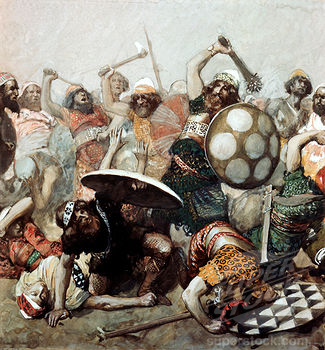 What is repentance? How do we repent? Does God ever need to repent?
What is repentance? How do we repent? Does God ever need to repent?
It is these sorts of questions we are considering today as we look at Jonah 3:9, where the king of Nineveh expresses his hope that God will repent.
The Text of Jonah 3:9
9Who knows? Perhaps God will repent and be sorry, repenting of His burning anger, and we will not be destroyed.”
In this discussion of Jonah 3:9 we look at:
- The king’s statement that he hoped God would repent
- The two words for repentance that the king uses and what they both mean
- Why repentance is important for all people
- The fact that repentance is not a condition for receiving eternal life
Resources:
- Redeeming God Discipleship Area
- The Gospel Dictionary Online Course
- Subscribe and Leave a Review on iTunes
Downloadable Podcast Resources
Those who are part of my online discipleship group may download the MP3 audio file for this podcast and view the podcast transcript below.
You must join a discipleship group or login to download the MP3 and view the transcript.
Thanks for visiting this page ... but this page is for Discipleship Group members.
If you are already part of a Faith, Hope, or Love Discipleship Group,
Login here.
If you are part of the free "Grace" Discipleship group, you will need to
Upgrade your Membership to one of the paid groups.
If you are not part of any group, you may learn about the various groups and their benefits here:
Join Us Today.

Do you like learning about the Bible online?
Do you like learning about Scripture and theology through my podcast? If so, then you will also love my online courses. They all have MP3 audio downloads, PDF transcripts, quizzes, and a comment section for questions and interaction with other students.
If you want to deepen your relationship with God and better understand Scripture, take one (or all) of these courses. They are great for personal study or for a small group Bible study.
You can see the list of available courses here, and if you join the Discipleship group, you can take all the courses at no additional cost. Go here to learn more and join now.




 I don’t know what your political views are, and frankly, I don’t care too much. But however you categorize yourself, I imagine that you have strong opinions about the violent actions of the people on the other side of the political aisle. Their violence is unjustified, right? It is wrong and should be condemned in the strongest possible ways, right? It needs to stop, because it’s evil, right?
I don’t know what your political views are, and frankly, I don’t care too much. But however you categorize yourself, I imagine that you have strong opinions about the violent actions of the people on the other side of the political aisle. Their violence is unjustified, right? It is wrong and should be condemned in the strongest possible ways, right? It needs to stop, because it’s evil, right?

 This is important because of the third principle of non-violent resistance, which is that we are not seeking to defeat people but to defeat injustice. Non-violence recognizes that those who perpetrate violence are victims of violence as well.
This is important because of the third principle of non-violent resistance, which is that we are not seeking to defeat people but to defeat injustice. Non-violence recognizes that those who perpetrate violence are victims of violence as well.
 If it is on the
If it is on the  God Takes on the Violence of All Humanity
God Takes on the Violence of All Humanity How can a God who says "Love your enemies" (Matthew 5:44) be the same God who instructs His people in the Old Testament to kill their enemies?
How can a God who says "Love your enemies" (Matthew 5:44) be the same God who instructs His people in the Old Testament to kill their enemies?

 Throughout history and around the world, people have noticed that violence permeates everything. From birth to death, from galaxies down to sub-atomic particles, violence is omnipresent. Whenever people recognize this, they are left with only two basic options for the existence and origin of violence.
Throughout history and around the world, people have noticed that violence permeates everything. From birth to death, from galaxies down to sub-atomic particles, violence is omnipresent. Whenever people recognize this, they are left with only two basic options for the existence and origin of violence.
